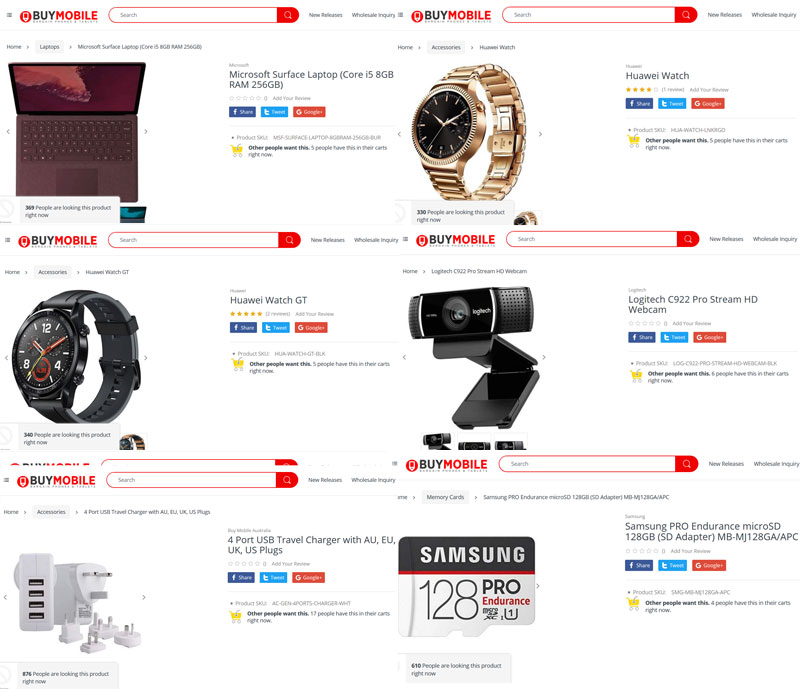Tonight, I despair the small business owners being lured by huckster tricks into making kneejerk marketing decisions to do a new course, buy new tech gear, or engage that shiny new social media tool that will "do it all for you".
Us humans have evolved to find routines and take the lazy path so we can reserve brain energy for novel situations and threats. On its own, this is a healthy thing that has helped us survive.
However, when stress is high (and who's not carrying some degree of anxiety as customers and clients curb spending by choice or necessity), we are more prone to make bad decisions; especially when our "natural" lazy thinking is fuelled by fear.
While the sight of instant marketing experts springing up from the shadows offering free webinars or "handy guides" seems like we are tapping a wellspring of human kindness, this trooper (who ran the first ever social media workshops for small business in South Australia back in 2005, and is still in the thick of it), is sensing a large degree of opportunism and sloppy thinking.
Yes, there are some good souls around, but there are plenty of thorns in the bouquet.
Examples of worrying marketing content
The main image for this post consists of two bits of social media content automatically compiled by an "Artificial Intelligence" tool that promises to carry the burden of having to come up with social media content.
I know what it's like running a small business and having every minute of the day accounted for as you put that blog or social media activity further down the To Do list.
I also know that when this happens, it's a sure sign that we don't really believe in the value of these tasks or that nobody has really shown us how they fit into a robust marketing strategy with an important role to play.
Enter Meet Edgar. The two posts in the image above were published using Meet Edgar by a local small business. But these posts not only do nothing to support their brand, they actually do damage. And while the Meet Edgar tool isn't solely to blame, its messaging is all about finding the easy way to keep your social media content pipeline full. Yes, its site talks about maintaining quality but these two examples show how this ideal is getting lost in translation.
The turtle post does damage because it is COMPLETELY irrelevant to the business and to the lives of clients, which means they've just eroded that precious dose of attention they'd been given by a social media user. Such doses are small and rare and should NEVER be frittered away by dross like this.
The beach post is even worse. At this time of social distancing to prevent the spread of Covid-19, especially for a therapist who spends time in close proximity to people, what is this post saying? Even though they don't mean to, this post is really saying, we don't give a damn about health protocols and we don't take anything seriously because we could only muster up some emojis as our caption to go with this picture.
This is terribly sad and I note the business owner has now been deleting such posts. As I mention in the video below, tools are only as good as they way they are being used. This tool might well have some value but in the haste of using it to save time, in these cases it is actually doing damage.
Now let's look at the BuyMobile website where I recently ordered a webcam, along with every other person and their dog. It's an example of how we need to apply "buy beware" thinking when shopping online and I hope will also prompt you to think twice before using "tricks" to get people to buy as you investigate ecommerce.
I know webcams are in demand at the moment but I wanted to check what the delivery promise on the site was, given that my unit has been delayed. Take a look at this random selection of items I found in the shop.

Lo and behold, would you believe every single item on their website is sitting in between 4-7 shopping carts of other shoppers AND is currently being "looked at" by between 300 and 800 people?
Well, blow me down, I am in the wrong game. Who would have thought a simple, common as muck, 4 Port USB travel charger (during this time of worldwide travel restrictions) would be in 17 shopping carts while being viewed by 826 would-be buyers.
This, my friends, has all the hallmarks of more automated muck, designed to trick you into a scarcity mindset so you "buy now". If anyone from BuyMobile can show me the actual data, I will be satisfied but at the moment it looks like the output of a plugin or system that generates this content randomly.
Simple, clearly-understood strategy is the surest defence against making kneejerk marketing decisions
There are no two ways about it. We will all get distracted by Shiny New Toy Syndrome or too-good-to-be-true promises if we don't guard our thinking zealously.
Especially in this time of heightened uncertainty, we are going to be vulnerable to making poor decisions under pressure.
There is no such thing as a free lunch. Period.
So what do we do when we're fretting about income and costs while knowing proactive action needs to be taken?
We need to think strategically. At the basic level, strategy means pushing up the lever of your advantage or pulling back on the level or your disadvantage. If sales are low due directly to bans and restrictions, then one option is to do repairs and plan for the future. If they are fair to middling, then effort could be well spent in trying to stimulate them further.
It is true that some strategy, even a back of the envelope strategy, is better than nothing, but there is no substitute for data you can interpret.
So, what Michael and I have done during this time fraught with despair, is offer the option of short, online discussions so you can bounce ideas off an outsider (an experienced outsider, of course), to be your confidante. If you come across some good opportunities, we will bless them, if we smell a rat, we'll explain why. For the sake of $60, the savings could be enormous!
We also have some structured marketing packages that build in an analytical framework around your online marketing assets so you can get usable data on what marketing activity is working, and what is not. This is the era in which you should demand fully accountable marketing from your consultants and in house teams. There is no genius but the market itself so there should be no embarrassment to learn that some assumptions were wrong. The embarrassment and pain should only be a true concern if it is ignored or hidden; that is simply dastardly!
One other way of using this time cleverly and frugally is how a few small tourist operators who have the wherewithal to get their hands dirty behind the scenes in their WordPress websites have employed us to be their mentors and support people as they use this time to revamp their online presence. It's smart. They are doing most of the work and only paying us for smaller engagements to share our experience. We are happy to help this way.
Plus, we are producing some online workshops with different bodies who subsidise access.
I want us all to get through this time and if some jaundice-coloured glasses are going to save some people from wasting time and money, or even damaging their brands, then I'm happy to be that curmugeon because I know we're doing a lot of creative work, too.
Finally, I said a lot of this in a rant on the weekend, using Zoom. Enjoy. If that's the right word for it?

